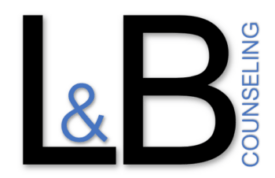Breaking the myths. Creating space for understanding.
When most people hear the word PTSD, they picture someone who’s been to war, maybe a soldier flinching at the sound of fireworks or experiencing a vivid flashback. And while those depictions represent real experiences, Post-Traumatic Stress Disorder is much broader, more personal, and often more invisible than people think.
L & B Counseling works with individuals of all ages and backgrounds who live with the impacts of trauma. Understanding what PTSD really looks like is one of the first steps to healing.
What PTSD Is
PTSD is a mental health condition triggered by a traumatic event, either by directly experiencing it, witnessing it, or sometimes even learning that it happened to someone close. Trauma can include:
- Car accidents
- Medical emergencies or chronic illness
- Physical or emotional abuse
- Sexual assault
- Natural disasters
- Neglect in childhood
- Sudden loss of a loved one
- School lockdowns or community violence
It doesn’t have to be a “big” event. What’s traumatic to one person might not be for another. Trauma is personal and valid, no matter what form it takes.
Common Signs of PTSD (That Often Go Unnoticed)
PTSD symptoms often develop within weeks of a traumatic event, but sometimes they don’t show up for months or even years. They can include:
- Flashbacks or nightmares
- Avoidance of people, places, or conversations that remind them of the trauma
- Hypervigilance — always on edge or easily startled
- Irritability or mood swings
- Emotional numbness or difficulty connecting with others
- Difficulty sleeping or concentrating
- Feelings of guilt, shame, or fear that “don’t make sense”
Many people live with these symptoms for a long time without realizing they’re linked to past trauma.
What PTSD Is Not
- It’s not a sign of weakness.
- It’s not something you can just “get over.”
- It’s not only for veterans.
- It’s not always dramatic or obvious.
PTSD is not about how “bad” the trauma was, it’s about how your brain and body responded to it.
There is Help and There is Hope
The good news? PTSD is treatable. Whether it’s through trauma-informed counseling, somatic interventions, EMDR (Eye Movement Desensitization and Reprocessing), cognitive behavioral therapy (CBT), or other evidence-based methods, healing is not only possible, it’s expected.
We create a safe, supportive space for individuals to process trauma, reconnect with themselves, and move forward with strength and confidence.
If you or someone you love is experiencing symptoms of PTSD, you don’t have to face it alone. Let’s talk.
Reach out to our team to schedule an appointment here
